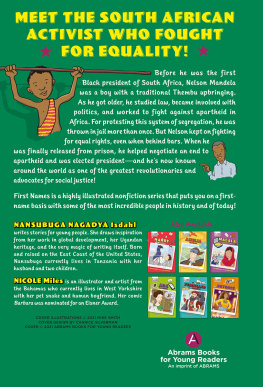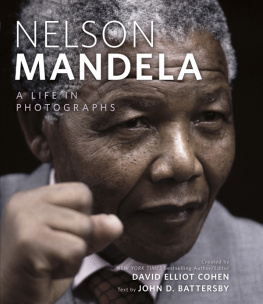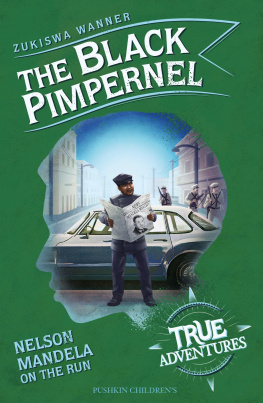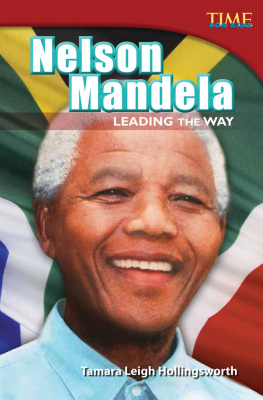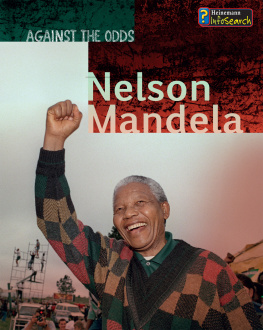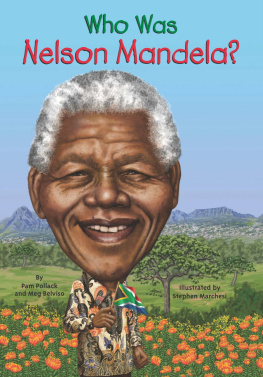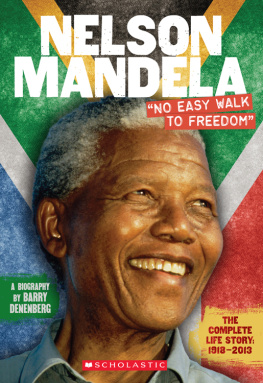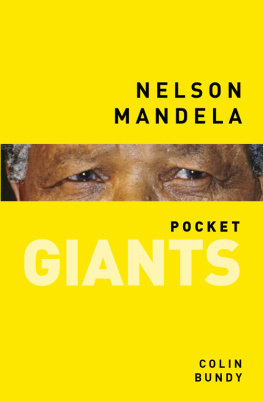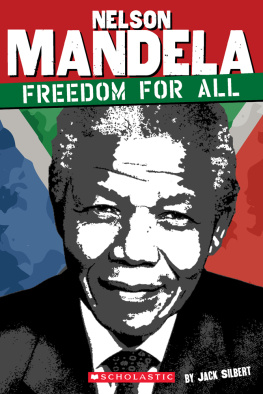Contents
Landmarks
Page List
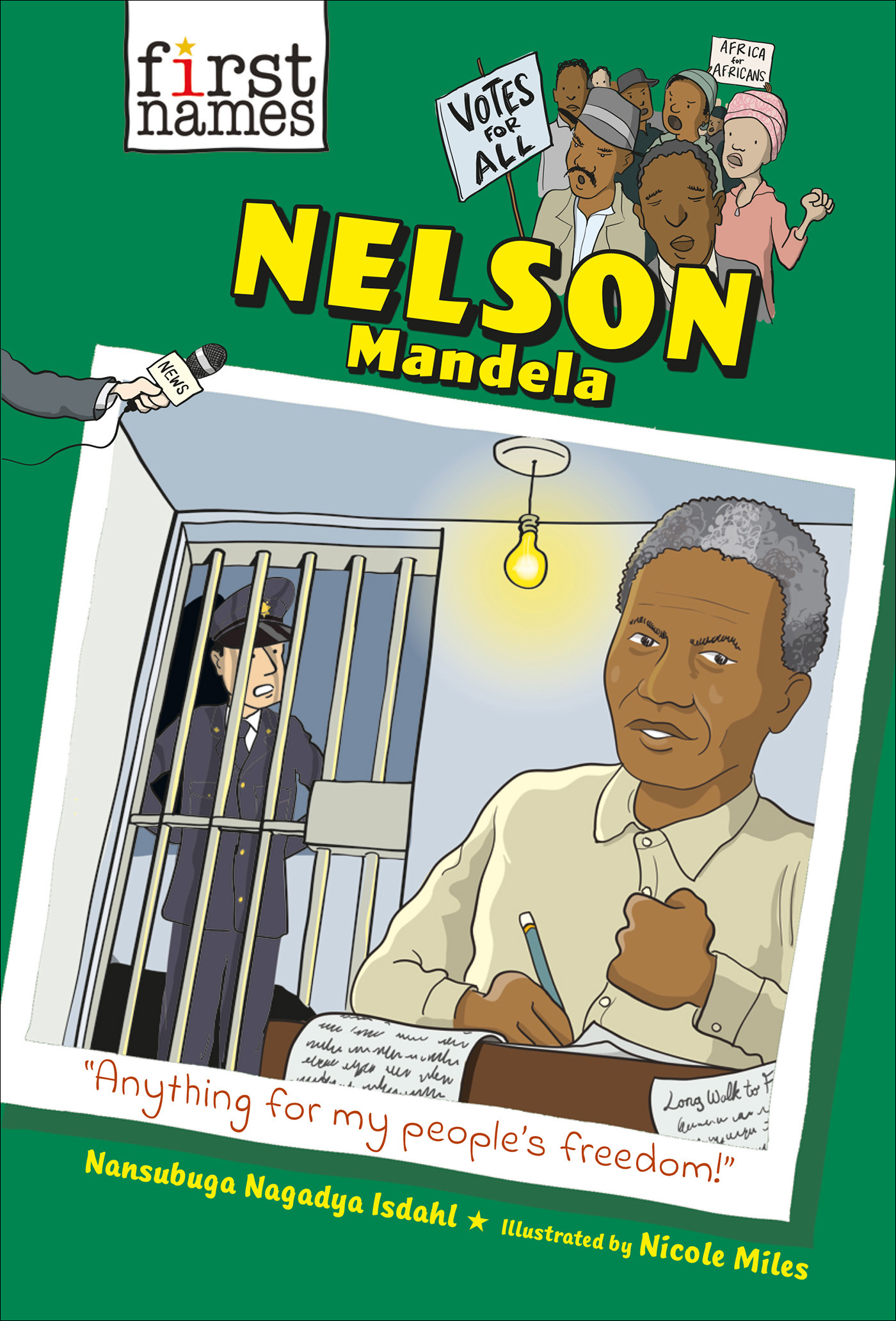

The facts in First Names: Nelson Mandela have been carefully checked and are accurate to the best of our knowledge, but if you spot something you think may be incorrect, please let us know. Some of the passages in this book are actual quotes from Nelson and other important people. Youll be able to tell which ones they are by the style of type: Well, I am not a saint The pronunciation guide at the back of the book will help you to read the African words and names.
Library of Congress Control Number 2021934539
ISBN 978-1-4197-5608-5
eISBN 978-1-64700-060-8
Text copyright 2021 Nansubuga Nagadya Isdahl
Illustrations copyright 2021 Nicole Miles
Book design by Charice Silverman
2021 as UK edition. First published in 2021
by David Fickling Books Limited
Published under license from David Fickling Books Limited. Published in 2021 by Abrams Books for Young Readers, an imprint of ABRAMS. All rights reserved. No portion of this book may be reproduced, stored in a retrieval system, or transmitted in any form or by any means, mechanical, electronic, photocopying, recording, or otherwise, without written permission from the publisher.
Abrams Books for Young Readers are available at special discounts when purchased in quantity for premiums and promotions as well as fundraising or educational use. Special editions can also be created to specification. For details, contact specialsales@abramsbooks.com or the address below.
Abrams is a registered trademark of Harry N. Abrams, Inc.

ABRAMS The Art of Books
195 Broadway, New York, NY 10007
abramsbooks.com

IntroductionNelson Arrives at the Great Place
THE PLACE: The royal residence of the acting king of the Thembu people, Transkei, South Africa
THE YEAR: 1930
It was late in the afternoon, the sun was setting, and twelve-year-old Nelson was exhausted. Hed been walking up and down hills and along dirt roads with his mom, pulling his trusty tin trunk, since the crack of dawn. They were headed to his new home and hadnt talked much on the journey. They hadnt stopped either. But when they arrived at their destinationa large and noble-looking residence in the middle of a quaint village at the bottom of a green valleyand walked through the gates, his exhaustion was quickly forgotten.
Nelson couldnt believe his eyes. Sprawled out in front of him were two large rectangular houses with tin roofs and bright white walls, seven nice-looking huts, a large vegetable garden, peach and apple trees, hundreds of sheep, and even a church! (All sure signs of great wealth in rural South Africa at the time.) Nelson had never seen such a magnificent place before. It was far grander than the modest grass-roofed huts hed lived in for most of his life.
Hed barely taken it all in when a huge Ford V8 motor car came roaring through the gate. Nelson hadnt seen many cars in his life eitherback in his village of Qunu they were a rare sight. And he definitely hadnt known a single soul who actually owned a car as nice as this one.
A group of respectable elders jumped to their feet, tipped their hats, and shouted, Hail, Jongintaba. The car door opened, and a short, stout man wearing a suit emerged.
Nelson was impressed. He knew that this man, who seemed able to command the respect of other people without saying a word, was going to be his legal guardian from now on.
Thanks to his fathers friendship with Jongintaba, a new world of privilege was suddenly opening up for Nelson, and it seemed both exciting and shocking! Gone was the simple, secure life hed lived with his mom. Gone was his chance to be crowned champion stick-fighter by his fellow herdboys. And gone were the evenings of listening to his fathers tales of historic battles and heroic warriors.
Jongintaba had full command of the Thembu kingdom and the power to change peoples lives, but he would never be king himself. He was only stepping in as regent or acting king until the real king, a young boy named Sabata, was old enough to take charge.
Nelson felt like he was being thrown into a river and carried off downstream with no idea where it would take him, but the Great Place was an important stepping-stone for him. He didnt know it yet, but living with Jongintaba would help him get to university, become the owner of one of the first Black law firms in Johannesburg, the leader of a movement that would help to free his people, and the first Black president of South Africa. A global symbol of courage, justice, and equality for everyone, everywhere, Nelson didnt just change his country; he changed the world.

You became a hero for so many people across the globe, but your fight to free your people landed you in prison for twenty-seven years! How did you survive?
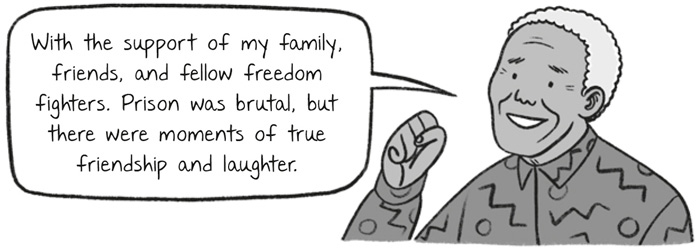

1 Nelson Is Named
Nelson wasnt actually called Nelson when he was little. As a member of the Thembu people, hed been named Rolihlahla. The name means tree-shaker in his local language, isiXhosa, but it could also mean troublemaker. In his early years, though, Rolihlahla hardly caused any trouble at all.
Hed been born into the royal Thembu family on July 18, 1918.

Each tribe belongs to a clan that is traced back to a specific ancestor.

Rolihlahlas father, Gadla Henry Mphakanyiswa Mandela, had four wives and thirteen children! In Thembu culture, it was common for a man to have more than one wifeRolihlahlas mom, Nonqaphi Nosekeni, was his dads third.
Gadla Henry usually only spent a week at a time with each wife, so little Rolihlahla didnt get to see him much. Then something happened that meant Rolihlahla got to see him even less.
As a village chief and royal adviser, Gadla Henry was wealthy and well respected, but he was also stubborn. When a British judge summoned him to court because of a complaint about a stray ox, Gadla Henry replied:

The king of the Thembu tribe might have named Gadla Henry chief, but South Africa was ruled by the British at the time. When the British issued an order, people were expected to listen. Refusing an order was shocking, and Gadla Henry had to be punishedso the judge took his title, most of his herd, and most of his land,

